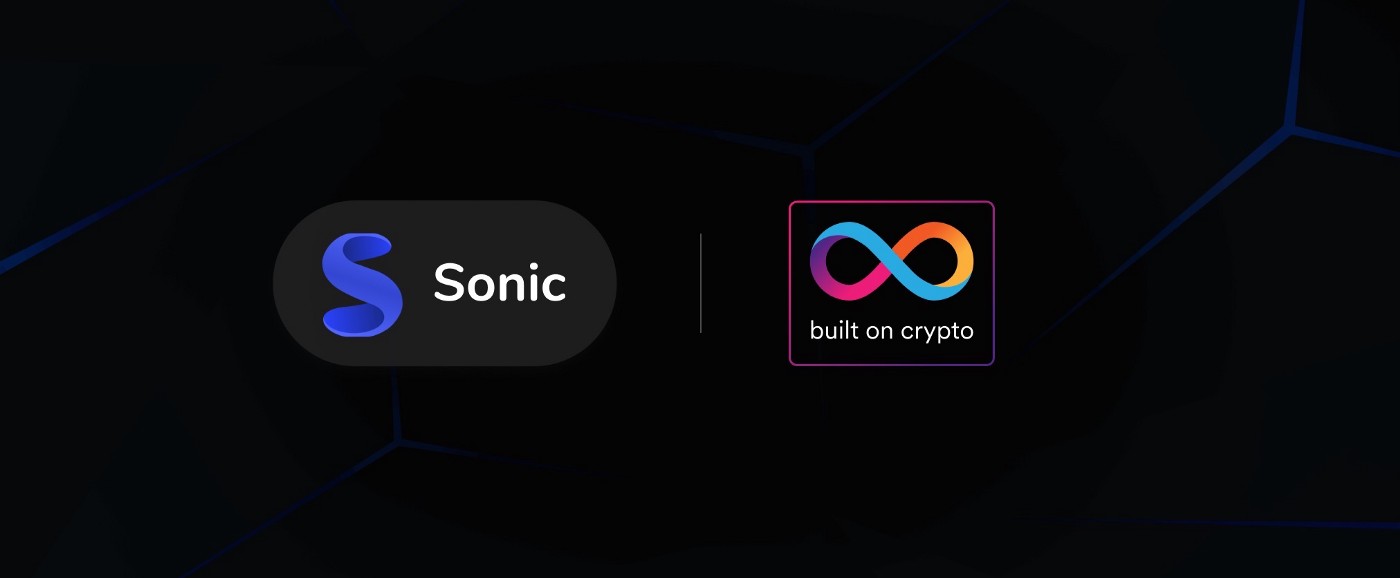摘要: Sonic is a new decentralized exchange and automated market maker with 1-second transaction finality and no gas fees.

With Sonic’s launch of a new decentralized exchange and automated market maker (AMM) running on the Internet Computer blockchain, users can now access permissionless token swaps and liquidity services over the protocol — where the Internet Computer’s reverse gas model introduces a new era of DeFi with zero gas fees and 1-second transaction finality. Formed after DFinance rebranded and joined with the Web3 product studio Psychedelic, Sonic aims to be one of the leading DeFi hubs serving the Internet Computer and its ecosystem.
Essentially comprising a cluster of DeFi protocols, Sonic offers permissionless swaps and liquidity mining. Its swaps will enable users to deposit tokens and automatically receive specified coins in return. Similarly, its liquidity protocols permit users to deposit tokens into pools and earn regular rewards via the collection of fees from users performing swaps.
Its launch is a big step toward composable DeFi on the Internet Computer. Sonic is opening its API to other developer teams so that they can build interoperable dapps that further expand the Internet Computer’s burgeoning DeFi ecosystem, and Sonic says that everything in the product will procedurally be made open source in the coming weeks.
As Nicolas Poggi, the COO of Psychedelic, explains: “Sonic’s DeFi protocols will not only serve DeFi users as an AMM platform, but will provide building tools through its protocol’s APIs so that developers can build, together with other emerging Internet Computer DeFi protocols, new platforms and experiences that further expand this ecosystem.”
Permissionless Swaps and Liquidity Pools
On Sonic, users who identify potential demand from other users who want to swap in or out of a token can earn themselves rewards (in the form of swap fees) for providing liquidity to a swap’s underlying liquidity pool.
Access to swaps and their pools is permissionless, while users can also start new swaps themselves. All they need to do is download the Plug wallet and use that to log into Sonic.
Initially, Sonic is launching with three tokens supported by default: ICP, Wrapped ICP (WICP), and Cycles Token (XTC).
“Starting with the Internet Computer’s native token is the first step towards giving these assets DeFi utility on the network,” says Poggi. “From here, we can expect community-created tokens to start appearing and to be added to Sonic.”
Other tokens will be added to Sonic based on community demand, with the only requirement being that they support the DIP20 standard. The range is likely to expand quickly, with Sonic itself already experiencing strong growth after only three days of operation.
In fact, within three days of its launch, Sonic has already processed over 11,000 transactions, with 130,000 XTC and 9,500 WICP in liquidity, equal to just over $365,000 — increasing the ICP token burn rate by over 64% in the process.
Speed and Interoperability
“Right off the bat, any DEX on the Internet Computer can benefit from the perks the network can provide in terms of transaction speed and minuscule fees. The computation power and scalability of the IC can make these perks a standard for this and any other DeFi experience,” says Poggi.
In addition, the Internet Computer’s direct integrations with chains such as Bitcoin and Ethereum — as well as community-built bridges like the Terabethia bridge to Ethereum — will allow Sonic to offer multi-chain services. It will benefit from the Internet Computer’s ability to bring assets from other chains into its own ecosystem, where they can seamlessly interoperate with IC tokens.
“That could potentially enable having swap pairs, liquidity pools, and other DeFi protocols on the Internet Computer with a mixture of both local IC assets, and tokens from other chains,” Poggi notes.
“Bringing BTC liquidity onto the Internet Computer can allow the BTC ecosystem to tap into a whole new wave of use cases and multi-chain asset interactions,” he adds. “It enables everything from BTC smart contracts powering complex DeFi operations on the IC, like lending, to the creation of a wrapped version of BTC, which would seamlessly interoperate with IC tokens and assets from other Terabethia-bridged chains, such as Ethereum.”
The Birth of a New Era for DeFi
Looking to the future, Sonic’s launch heralds a new era for DeFi due to the Internet Computer’s technical superiority compared to legacy blockchains and its reverse gas model. By attracting users and encouraging the growth of liquidity, Sonic will help provide a foundation on which other Internet Computer-based DeFi protocols or exchanges will push the entire DeFi industry to millions of new users.
轉貼自Source: medium.com
若喜歡本文,請關注我們的臉書 Please Like our Facebook Page: Big Data In Finance


留下你的回應
以訪客張貼回應